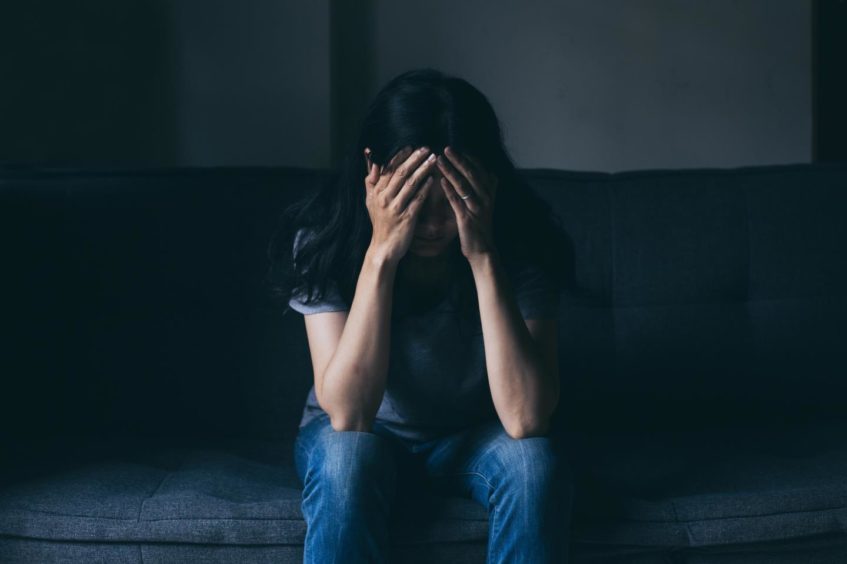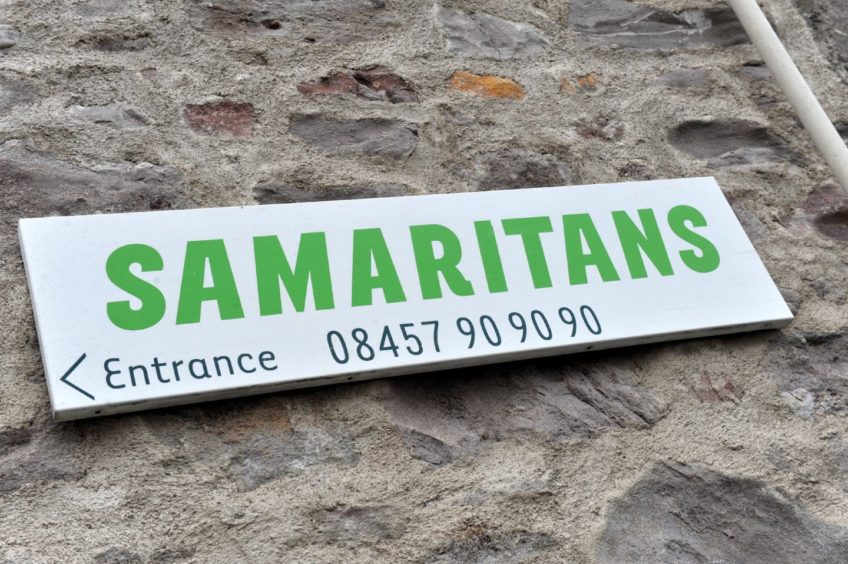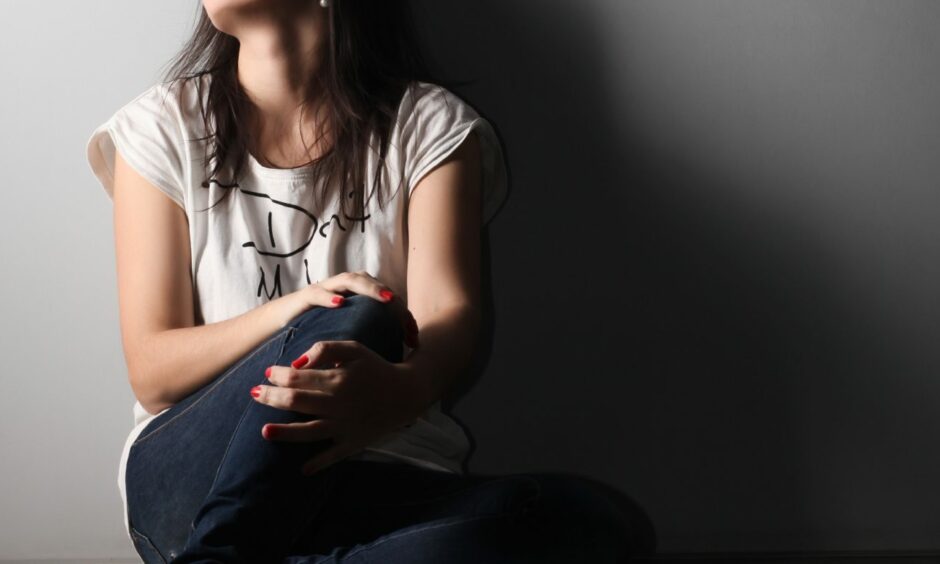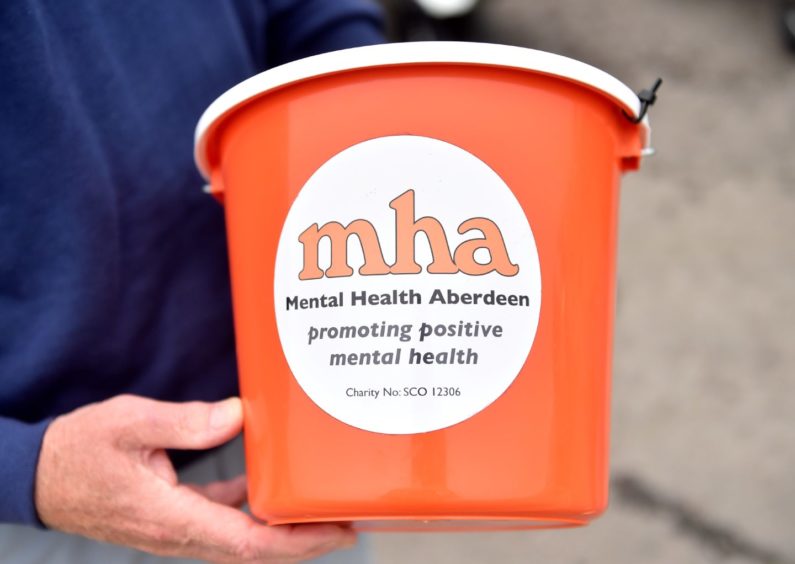One in 20 people could be thinking of suicide – but not many people know the best way to help someone who could be considering taking their own life.
However, leading employers from around the north-east have been taking training ahead of Suicide Prevention Day 2021.
SAMH (the Scottish Association for Mental Health) has completed over 200 suicide prevention training sessions over the pandemic with more than 2,300 people involved.
September 10 marks the day organisations and communities around the world come together to raise awareness of how to create a world where fewer people die by suicide.
Figures show one person a week lost their life to suicide
The latest figures from the National Records of Scotland show that more than one person a week lost their life to suicide in Grampian in 2020.
SAMH coordinates the North East Suicide Prevention Leadership Group (NESPLG), which brings together suicide prevention expertise from across Aberdeen city, Aberdeenshire, and Moray, with a shared commitment to save lives.
The training has been delivered to people working in key employers and industries in the north, including Police Scotland, Aberdeenshire Council, Aberdeen Council, NHS Grampian, HM Coastguard Grampian & Tayside, oil & gas, education, fishing and farming.
The introductory sessions help people feel more confident about having a conversation with someone about suicide and connecting them with appropriate support.

‘We need to encourage people to talk and ask for help’
Liam Yule, north-east suicide prevention lead for SAMH, said: “We work with incredible partners across the north-east of Scotland to provide people from different backgrounds and communities with the skills they need to help someone at risk of suicide.
“Thinking about suicide is very common – in fact, it’s estimated that one person in 20 is thinking about suicide at any one time – so training like this is really valuable for us all.
“It’s been great to get feedback from participants that many of them think it will be helpful not just in their professional lives, but also in their personal lives.
“As we collectively focus on recovery from the pandemic, we need to encourage people to talk about suicide, to feel able to ask for help, and to feel confident to give help when it’s needed; and Suicide Prevention Day is a great time to shine a light on this.”
‘The right people are getting the right support’
The NESPLG works closely with Police Scotland to help officers respond in different scenarios and to provide follow up support to groups affected by suicide.
This includes using data to identify at-risk demographics and quickly target them with tailored support and training.
Darren Bruce, who leads the harm reduction team in Police Scotland’s North East Division said: “The police have an important role to play in helping prevent suicide.
“We’ve built a really meaningful and valuable partnership with SAMH and the North East Suicide Prevention Group that allows us to support some of the most at-risk groups in.

“This could be within a school, an online community, or a geographical region. Working with SAMH means that together, we ensure the right people are getting the right support.
“We’re in the process of developing a bespoke training programme for officers which will complement the existing suicide prevention training, which has included providing them with the skills to have conversations with members of the public in distress, and to escalate for longer-term support if required.”
Training helps open conversation and dissolve stigma
Fourteen rescue teams from the HM Coastguard, including in Aberdeen and Grampian, have also completed the training having often being called upon to assist people with thoughts of suicide.
The training has helped rescue officers to better support those who need it.
April Doig, senior coastal operations officer at HM Coastguard Tayside & Grampian, said: “The training has helped to open the conversation and dissolve the stigma around mental health.
“It also helps our Coastguard rescue officers better help and support those in our communities, their own friends and families and each other.
“With so many people experiencing mental health problems, especially during such a difficult year, this training is invaluable.
“People are often concerned in these kinds of situations that they may accidentally say the wrong thing, but our SAMH trainer gave us the confidence and tools we need to help, which is really empowering.”

Along with emergency services and frontline workers, the training has been well received with employees of Aberdeenshire Council, helping managers and mental health first aiders upskill.
Health promotion officer, Mitch Robertson, from the wellbeing team at Aberdeenshire Council, said to improve one’s wellbeing there needs to be information shared on topics like suicide and mental health conditions in order to reduce stigma around them.
As a result, he sets up workshops to get people involved and raise awareness.
‘Have the courage and confidence to talk to loved ones and colleagues’
Mental Health Aberdeen’s chief executive Graeme Kinghorn weighed in on the importance of the date.
He said: “The recently published Scottish suicide statistics for 2020 by the Scottish Public Health Observatory paint a picture that shows no significant signs of improvement across Scotland as a whole with 805 people, 575 men and 230 women taking their own lives.
“As someone who has lived his whole life in the north-east of Scotland, I wanted to highlight what the local figures for Grampian are and after looking at the detail, two particular trends jumped out at me.
“Over the 39 years of data given, the average recorded suicides over this period in Grampian are almost identical to the 2020 figures themselves, which are that 60 men and 16 women became one of these terrible statistics.
“The historic trend would suggest that in 2021 we can expect between 75 and 80 local people to commit suicide, around 60 men and around 20 women.
“Men are also between three and four times more likely to commit suicide in Grampian which is higher than the Scottish figure of just over two-and-a-half times and this shows why men’s mental health, in particular, is worthy of renewed focus and discussion.”
Mr Kinghorn added that each life lost by suicide is preventable – if loved ones, colleagues or friends display signs of unusual behaviour – it’s “vitally important” to have the confidence, courage and make time to talk to them.
App created to offer support
SAMH is encouraging those affected by suicide in any way to download the free Prevent Suicide app, which has been created to offer support for those living across the region. To download the app, visit www.preventsuicideapp.com

Several events have been taking place in Aberdeen in the lead up to and on Suicide Prevention Day 2021, including a drop-in Conversation Café in Union Square on Suicide Prevention Day, where team members will be sharing suicide prevention materials and information.
Marischal College will also be lit up yellow on the day.
If you’re thinking of suicide and need help now, you can contact the Samaritans 24/7 free of charge on 116 123.


